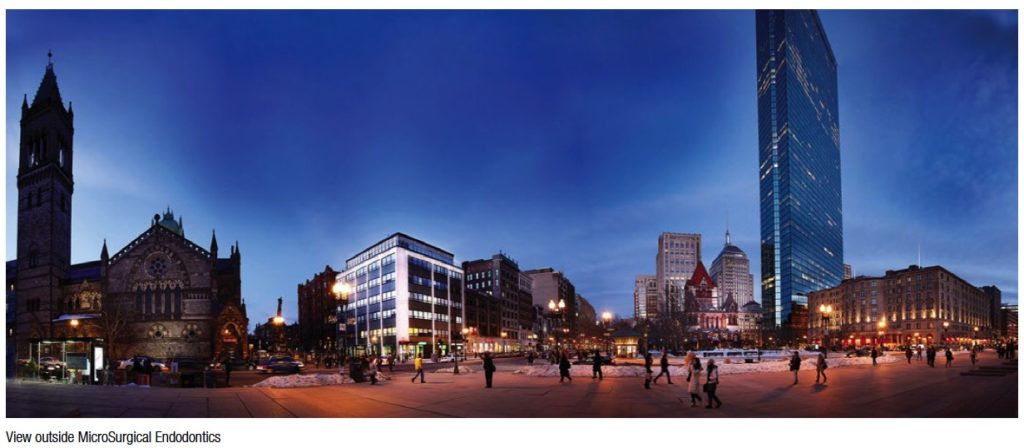 Lights, camera, endo!
Lights, camera, endo!
What can you tell us about your background?
I was born in Iran but left with my family after the 1979 revolution. We lived in Brussels, Belgium, for several years where I went to school before I moved to the United States at the age of 16. I finished high school in Los Angeles and majored in biochemistry in college. I then moved to Chicago in 1990 to attend dental school at Northwestern University Dental School. I moved to Boston in 1994 to complete my endodontic training at Harvard School of Dental Medicine in 1997. 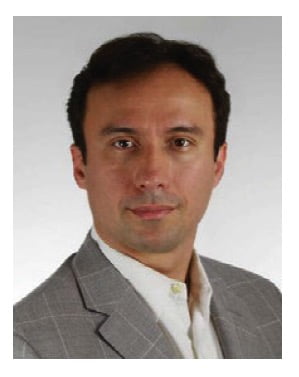 There I also received a Master in Medical Sciences in the area of bone biology following 3 years of research in an orthopedic laboratory at Boston Children’s Hospital. Immediately after graduation, I began teaching in Harvard’s Post-Doctoral Endodontic Program and began clinical practice as an endodontist in a large multi-specialty group practice. During early 2000, I built from scratch a solo endodontic practice called Micro-Surgical Endodontics in downtown Boston. The practice quickly grew to four endodontists, and I continued to practice full time and teach part time. In 2008, I decided to go to film school for the next 4 years, to pursue another area I was passionate about. I also got married and had a son. In 2013, my program director at Harvard during my residency, Dr. Kenneth Koch, who had left Harvard in the 1990s to create a private endodontic education company called Real World Endo®, retired from his position as president and asked me to run the organization he had founded and developed with his business partner, Dr. Dennis Brave. I came on board as the Chief Executive Officer and President of Real World Endo in 2013 and began to apply my film and technology knowledge and mix it with my endodontic and pedagogical experience to develop Real World Endo’s next phase, when we shared endodontic knowledge worldwide through the Internet.
There I also received a Master in Medical Sciences in the area of bone biology following 3 years of research in an orthopedic laboratory at Boston Children’s Hospital. Immediately after graduation, I began teaching in Harvard’s Post-Doctoral Endodontic Program and began clinical practice as an endodontist in a large multi-specialty group practice. During early 2000, I built from scratch a solo endodontic practice called Micro-Surgical Endodontics in downtown Boston. The practice quickly grew to four endodontists, and I continued to practice full time and teach part time. In 2008, I decided to go to film school for the next 4 years, to pursue another area I was passionate about. I also got married and had a son. In 2013, my program director at Harvard during my residency, Dr. Kenneth Koch, who had left Harvard in the 1990s to create a private endodontic education company called Real World Endo®, retired from his position as president and asked me to run the organization he had founded and developed with his business partner, Dr. Dennis Brave. I came on board as the Chief Executive Officer and President of Real World Endo in 2013 and began to apply my film and technology knowledge and mix it with my endodontic and pedagogical experience to develop Real World Endo’s next phase, when we shared endodontic knowledge worldwide through the Internet.
When did you become a specialist and why?
I was born into a dental family. My father is still a practicing oral surgeon! Growing up, I used to assist him with his surgeries and worked in his practice ever since I was a teenager. Therefore, I was destined for dentistry and specializing. In fact, I never considered anything else. Becoming a specialist was a natural progression of my dental education, and I’m very happy with how I managed to combine my two passions of dentistry and film.
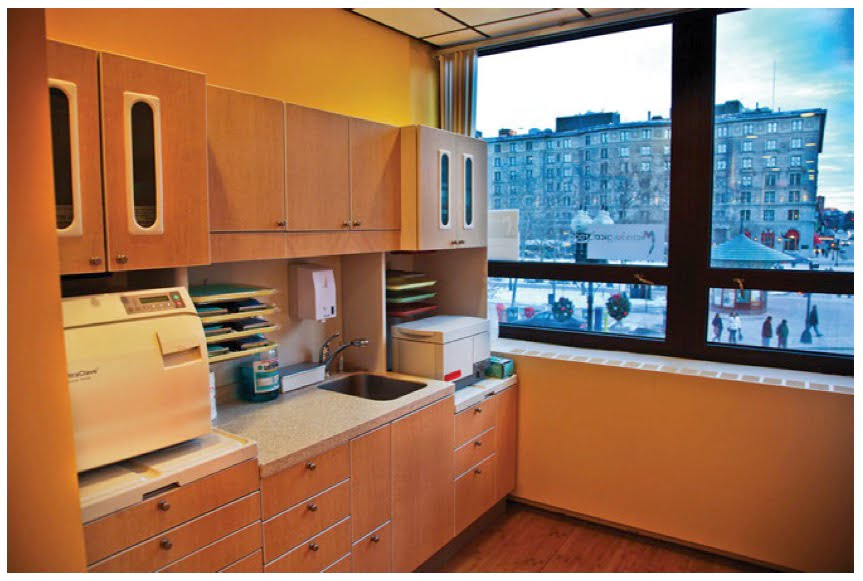 Is your practice limited solely to endodontics, or do you practice other types of dentistry?
Is your practice limited solely to endodontics, or do you practice other types of dentistry?
My associates and I are all endodontists, and our practice, MicroSurgical Endodontics, is limited to surgical and nonsurgical root canal therapy.
Why did you decide to focus on endodontics?
I chose endodontics because of its precision, delicacy, and the high level of dexterity required. I also found it an exercise in discipline and patience. Due to its emergency nature, it is a profession where immediate gratification may be gained by helping people in acute pain. I’m very happy I chose endodontics as a profession and find it fulfilling on many levels, the least of which is the flexibility it affords me to pursue my many other interests in life.
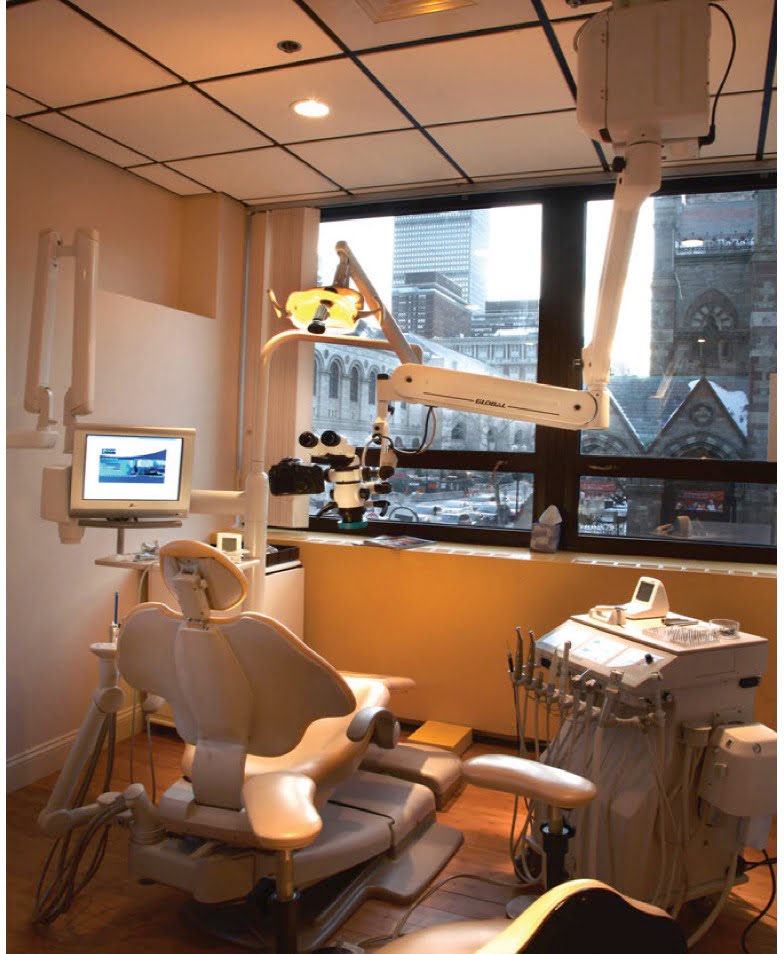 Do your patients come through referrals?
Do your patients come through referrals?
Approximately 75% of our patients are referrals from colleagues; but we are particularly lucky to enjoy a high rate of referrals from our former patients and our reputation online. This is a testament to our “patient-based” philosophy of care at MSEndo that revolves around the idea of centering the care on each patient’s physical and emotional needs and focusing on patients’ complete satisfaction with our services as a measure of success versus the mere radiographic results we can achieve clinically. We don’t pat ourselves on the back based on our radiographic results but how our patients feel about the care we have rendered. All staff members, doctors, nurses, and front desk personnel in our office are rated anonymously by each patient at the end of a procedure based on his/her perception of the care and competence he/she experienced in our care. We constantly review these surveys and re-evaluate our own efforts in living up to our potential.
 What training have you undertaken?
What training have you undertaken?
I received an excellent endodontic education in the Harvard School of Dental Medicine’s Post-Doctorate Endodontic Program where under the tutelage of Drs. Kenneth Koch and Robert White, I managed to get excellent clinical and academic training in the field. Although this program is a year longer than other programs, I found it a worthwhile investment for my particular interest in teaching and sharing what I know with others. I have stayed active at Harvard and have been on faculty in the post-doc endo program since graduation. I am also involved with the Alumni department, where I currently am the Editor of the Harvard Dental Bulletin.
Who has inspired you?
I have been most inspired by my parents, whose complete dedication to their children set the bar very high in my personal life and my own relationship with my son. Today, I’m also inspired by my work and the great opportunity I have to work with a remarkable team of faculty endodontists at Real World Endo. Our faculty’s teamwork and dedication to teaching and sharing their knowledge is remarkable.
What is the most satisfying aspect of your practice?
The most satisfying aspect of my practice is having implemented consistent systems in order to achieve that “wow” factor from our patients after experiencing our service. I promise a pain-free root canal procedure to my patients, and since I taught anesthesia and head and neck anatomy at Harvard Dental School for many years, I sincerely believe that this is a predictably deliverable promise to all patients. I am most satisfied when my patients affirm my promise at the end of each procedure.
Professionally, what are you most proud of?
I’m proud of my staff and having great relationships with my referring sources and our patients. I’m also proud of being able to consistently deliver the optimal results that are expected of us in challenging cases.
What do you think is unique about your practice?
We are a very small, boutique type of an endodontic practice and do not treat a large volume of patients on a daily basis. We work with a small group of highly reputable restorative dentists and provide them and our patients with the highest quality of service. Our office consists of only three staff members whom we value greatly, and they, in turn, make every effort to provide a warm, caring atmosphere. Therefore, although our procedures are very efficient, we take plenty of time to make sure patients are comfortable and at ease before, during, and after the procedure. We try to treat patients as guests in our house and not customers. We try to get to know them and are genuinely concerned about the interesting and highly diverse group of patients we have the privilege of treating.
What has been your biggest challenge?
My biggest challenge has been to balance the inordinate amount of time that running a practice and an educational company consumes with the many other diverse interests I have both professionally and personally.
What would you have been if you had not become a dentist?
I’ve always been a fan of both science and arts. On the one hand, I may have become a biochemist and, on the other, a cinematographer or filmmaker. But I enjoy science the most and am constantly trying to combine such interests in the context of education.
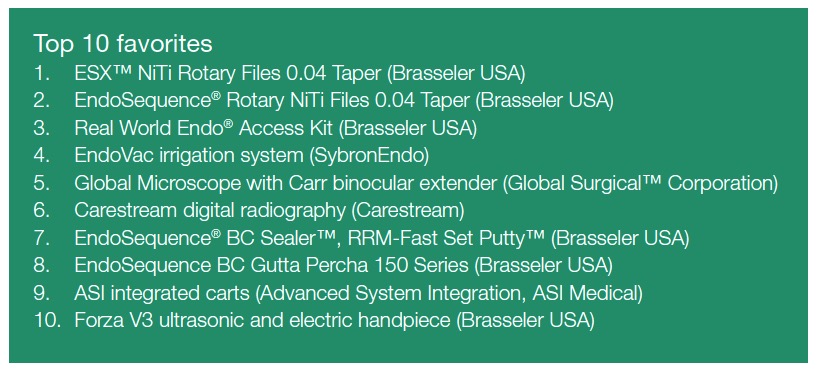 What is the future of endodontics and dentistry?
What is the future of endodontics and dentistry?
I think the foreseeable future of dentistry and endodontics is great. It is true that pressures from different directions may somewhat affect the amount and availability of endodontic cases in the future, but people still have the common sense to try to preserve their own dentition. And so long as we have people who want to save their teeth, we can provide them endodontic services to achieve their needs. At some point down the line, however, I hope that science will come through, and we are able to replace our missing or damaged teeth with their biological counterparts. I believe that the future will involve regenerative sciences for organ replacement, and missing teeth will likely be a prime candidate for such procedures. This will be a great service for those in need.
What advice would you give to a budding endodontist? What are your top tips for maintaining a successful specialty practice?
My advice to any young endodontist and the secret to my own practice success are to establish a patient-based endodontic practice. What I mean by that is that in dental school and even in the endo program, we only get trained in how to treat teeth. But it’s only when we learn how to treat people as a whole and not just their teeth that we fully reap the rewards of our potential as healthcare providers. Improving our Emotional Quotient (EQ) alongside our Intelligence Quotient (IQ) will go a long way to in making us more successful. Treating patients rather than teeth and radiographs is not only the recipe for success, but also the recipe for obtaining happiness and fulfillment from our daily professional experience. Addressing patients’ concerns from their point of view, being sympathetic to their needs and demands, and providing an environment filled with sympathy, warmth, and respect are at the core of our mission statement and what we try to achieve as a team.
What are your hobbies, and what do you do in your spare time?
My problem is that I have more hobbies and interests than spare time! Primarily, I love traveling and learning. I enjoy going somewhere new and discovering things I did not know. As a filmmaker, I enjoy creating travel videos and regularly help my filmmaker friends with their professional gigs such as commercials or short features. I’ve sold some of my own travel and documentary work to television and airlines. Obviously, I also make videos for our educational company Real World Endo. It’s now becoming a large library of educational videos at https://realworldendo.com/videos, and I intend to grow it over the next year. I also do quite a bit of photography, painting, and mixed media art in my spare time. On the athletic front, I play competitive squash year-round in the A ladder. I also swim and play tennis during the summer. I love listening to podcasts and music throughout the day. I consider teaching as a hobby. I’ve been teaching at the Harvard endo program since its inception 2 decades ago, which has greatly enriched my life by trying to give back to my profession and share my experiences with my future colleagues. I have been consistently taking night classes at Harvard Extension School since 1996 on every conceivable scientific and non-scientific subject (from art history to astrophysics!). Now that I’m a father of a 6-year-old, however, many of my hobbies are taking a second seat to spending time with my son and developing him into a productive young man. I now hope to teach what I have learned to my son, Darian.
Stay Relevant With Endodontic Practice US
Join our email list for CE courses and webinars, articles and more..

